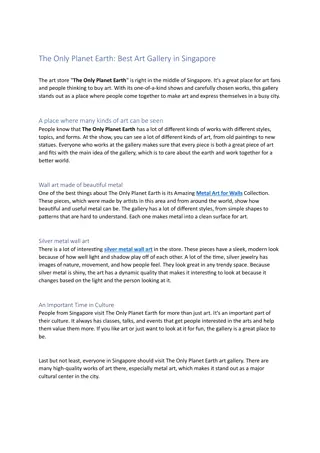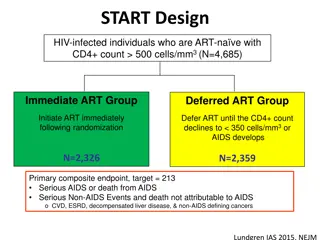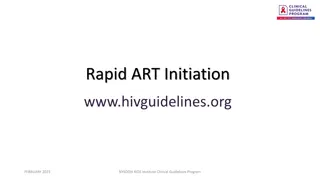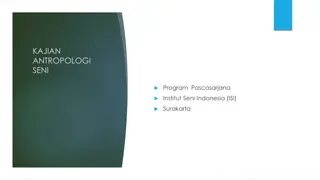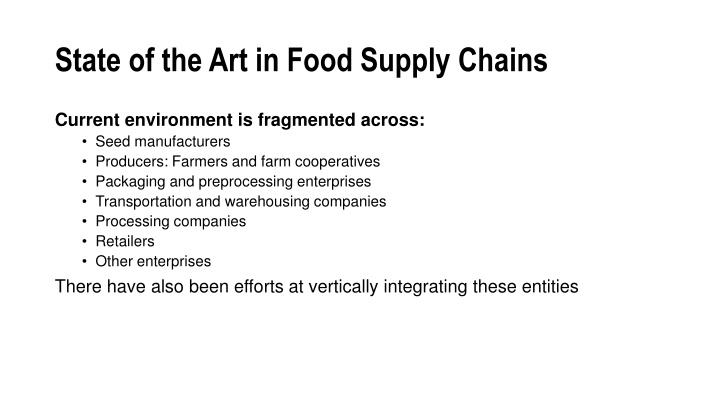
Revolutionizing Food Supply Chains: Vertical Integration and Optimization
The current state of food supply chains is fragmented across various entities from seed manufacturers to retailers. Companies like Bayer/Monsanto and major retailers like Walmart have utilized precision gene engineering and vertical integration strategies, impacting market share and value distribution. Producer-distributor conglomerates like Cargill focus on connecting producers and users, while supply chain services companies offer optimization services specific to food supply chains. Efforts for open markets, transparency, and fair practices are emphasized for building a more efficient food industry.
Download Presentation

Please find below an Image/Link to download the presentation.
The content on the website is provided AS IS for your information and personal use only. It may not be sold, licensed, or shared on other websites without obtaining consent from the author. If you encounter any issues during the download, it is possible that the publisher has removed the file from their server.
You are allowed to download the files provided on this website for personal or commercial use, subject to the condition that they are used lawfully. All files are the property of their respective owners.
The content on the website is provided AS IS for your information and personal use only. It may not be sold, licensed, or shared on other websites without obtaining consent from the author.
E N D
Presentation Transcript
State of the Art in Food Supply Chains Current environment is fragmented across: Seed manufacturers Producers: Farmers and farm cooperatives Packaging and preprocessing enterprises Transportation and warehousing companies Processing companies Retailers Other enterprises There have also been efforts at vertically integrating these entities
Seed Producers Companies such as Bayer/Monsanto, Dow Agro, Syngenta, DuPont, BASF, KWS SAAT, Canterra, AgreLiant, Land O Lakes, and Sakata commonly use precision gene engineering for optimizing seeds. Genetic motifications are primarily used for specific phenotype (nutrition, drought resistance, pesticide resistance). The same techniques can be easily used for intrinsic or extrinsic barcodes. Genomic variants have been used in patents, litigation, and intellectual property protection (an alternate use of traceback) [Monsanto vs. Brazilian Farmers Union]
Major Retailers Four retailers (Walmart, Kroger, Albertsons, and Costco/ Ahold) control over 40% of the food market share. These retailers have used their market share to capture significant fraction of the value in the food chain by strongly integrating them vertically, minimizing transparency and accountability, and due-diligence. Several recent studies (https://www.oxfamamerica.org/static/media/files/US_Supermarket_Supply _Chains_End_the_Human_Suffering_Behind_our_Food_report.pdf) have highlighted the desperate need for open markets, transparency, and fair practices. These are precisely our motivations for building an open market.
Producer-Distributor Conglomerates Companies such as Cargill and ADM connect producers and users of grains and oilseeds through origination, trading, processing, and distribution. They also provide a range of farmer services (crop input, field management, yield and profit maximization, and risk management). ADM, for example, operates 270 food processing plants and 420 crop procurement facilities. These processes are highly optimized internally, however, there is little data visibility across boundaries of these systems, and little ability to solve the problems of optimization, incentives, and end-to-end phenotyping.
Supply Chain Services Companies General supply chain optimization has a long history in research and practice. Food supply chains, though, have specific considerations, such as compliance, safe handling, certification. A number of companies provide services in this space (Penske Logistics, Baker Tilly, along with global players such as Accenture and BCG). These companies provide various services, ranging from training, compliance, instrumentation, transaction markups, audits, and scaling. These are provided on a per-vendor basis.
Traceability Solutions for Supply Chains IBM Food Trust is a blockchain based network for supporting food supply chains. This is a relatively simple blockchain implementation with minimal support for privacy, cross party validation, and expressing intra-party logic for optimization and audit. Bext360 is a startup that provides a third-party blockchain solution for food supply chains. Once again, beyond a simple ledger, this solution provides no services that are needed to implement a realizable cross-vendor solution. Higher level services atop blockchain ledgers are provided by companies such as TransparentPath. All of these solutions work as vertically integrated solutions (see also IBM-Walmart), or as single vendor solutions. These solutions cannot support an open market with necessary support for privacy and constrained APIs. We strongly believe that an open market is a critical aspect of scalable, secure, optimized food supply chains.










